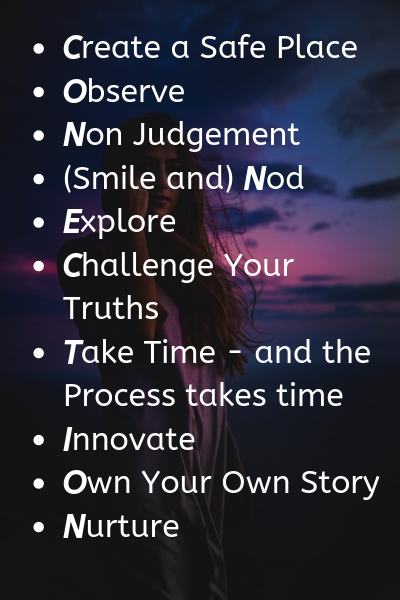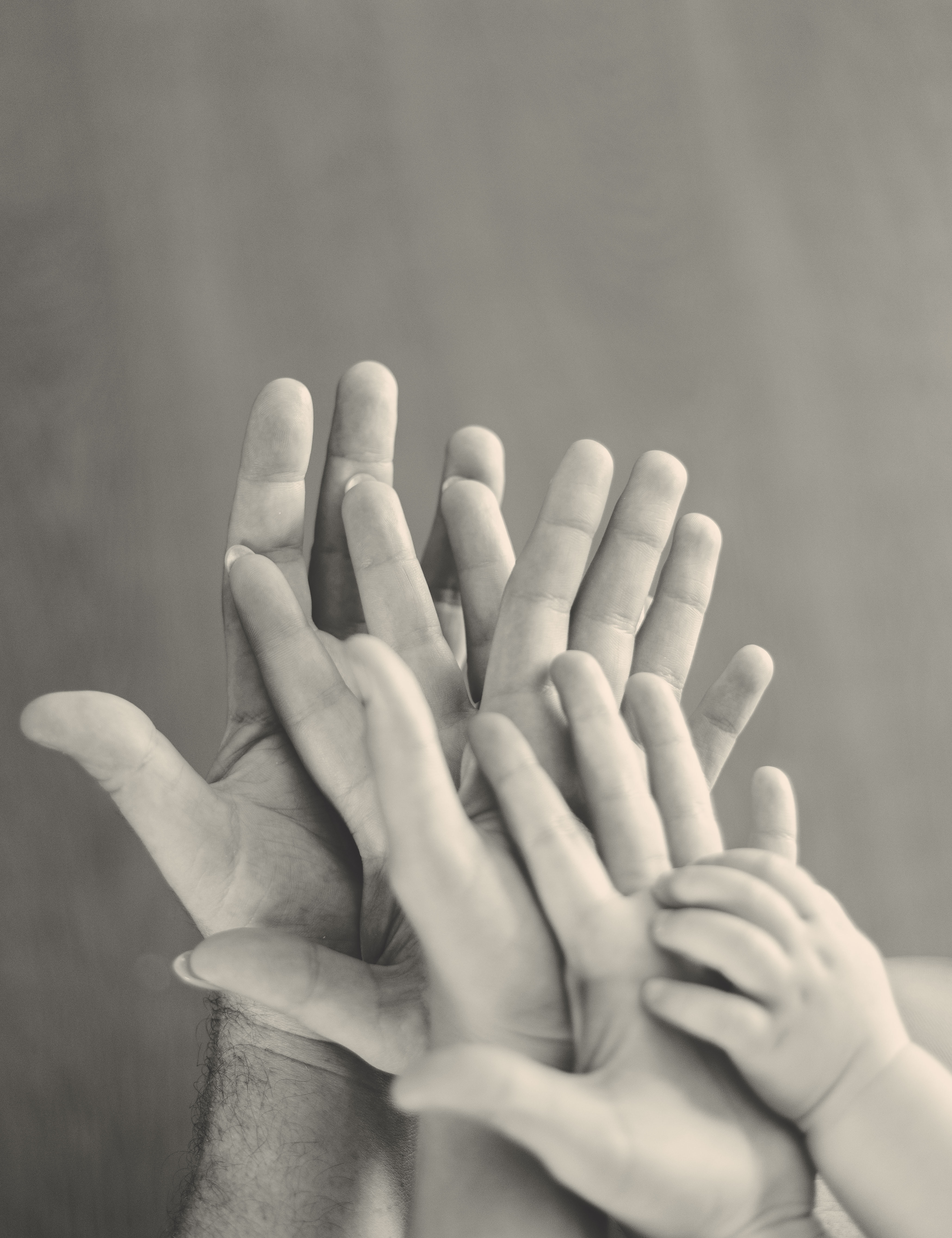Observe!
 In case you missed previous articles about the basics of C.O.N.N.E.C.T.I.O.N., here’s a quick recap:
In case you missed previous articles about the basics of C.O.N.N.E.C.T.I.O.N., here’s a quick recap:
Create a safe place
Observe
Nonjudgment
(Smile and) Nod
Explore
Challenge Your Truths
Take Time – and the Process Takes Time
Innovate
Own Your Own Story
Nurture
To increase your connection with your teens, your partner, your boss, or your arch-nemesis on the PTA, you don’t have to follow these in any particular order – you’ll find one that resonates and dig in, and then you’ll find another that needs some attention. And you’ll probably come back to ideas you’ve visited before because, well, we can always revisit stuff we’ve worked on in the past!
So, let’s take a look at the second concept listed, OBSERVE. Dictionary.com gives us two definitions:
 Observe, verb
Observe, verb
- notice or perceive (something) and register it as being significant.
"young people observe that decisions are made by others"
- make a remark.
"“It's chilly,” she observed"
I think we probably think we’re pretty good at acting out the second definition. But, how good are we, REALLY, at the first? Maybe we notice a lot of things, but do we stop and consider their significance? And, when we do make a remark, do we do so truly from a place of neutral observation, or do we lace our remark with passive-aggressive or critical intent?
Many of us agree that we say just as much, if not a whole lot more, with our nonverbal communication than with our verbal communication. And then, there’s the old adage, ‘It’s not what you say, it’s how you say it.’ And yet, we don’t always track patterns in our nonverbal interactions, especially with our teens. Paying attention to those patterns can help us pull together pieces that might not otherwise seem important.
Think about the last time you went to the doctor. They ask about your behaviors: how much sleep do you get, how often do you eat, what are your energy levels like, etc. You can answer their questions a lot better if you track them, right? Well, creating connection with others can be a lot easier when you pay attention to their behaviors in the same way.
 So, what should you pay attention to? Here are some ideas. It’s not realistic to track all of them all the time, but at least thinking about what to look for will increase your awareness. Tracking changes in these are powerful because then it gives you data you need when it’s time to talk with your teen or their doctor or other support. Here are some starting points:
So, what should you pay attention to? Here are some ideas. It’s not realistic to track all of them all the time, but at least thinking about what to look for will increase your awareness. Tracking changes in these are powerful because then it gives you data you need when it’s time to talk with your teen or their doctor or other support. Here are some starting points:
Clothing & Accessories: How frequently does your kiddo wear her favorite jeans? Has his favorite jacket suddenly stopped making an appearance? (Hmmm…if you notice he hasn’t worn it in a week, you can observe, ‘Hey, I noticed you haven’t worn your favorite jacket for the last week.’ And you can LEAVE IT at that – give him space to respond!)
Conversation Topics: How often does your teenage son talk about the same girl? Has your daughter STOPPED talking about a friend recently? Is your daughter talking more about weight and body image topics?
Entertainment: What kinds of music is your teen listening to? What concerts are they interested in? What YouTube videos have they shared with you? Do you notice any themes in the kinds of things they find funny or disturbing?
Behaviors: How much sleep is your teen getting? Does she seem more irritable lately? Identify exactly how you see this irritability: is she responding with shorter, snippier comments? Is she more fidgety than normal? Does he seem more clumsy than in the past?
Physical health: Make a note in your calendar about when your daughter starts her period each month. (Maybe some of her irritability is actually hormonally-related and beyond her control.) Note when your son tells you that his legs hurt a ton…and then pay attention to how much he’s eating. If there’s an increase in appetite, make a note of when you first observe it, and then note when you see it decrease.
But here’s the thing…observing isn’t JUST about paying attention to your kiddos. It’s also about observing yourself. When do you tend to get the most irritated? When did you and your spouse have an argument? What is your own appetite like? How consistent have you been with your own self-care? What kinds of comments do you find provoking, regardless of who made them? All those questions you can ask about your kid – you know where I’m going with this – ask them about yourself, too.
 For now, don’t try to find any meaning in your observations. Just watch, listen, and make notes. You can track your observations in a journal, in your calendar, or on post-it notes on your home office wall. Whatever manner of tracking works for you, be sure to put your thoughts somewhere where you can go back and look for patterns. We’ll get there. In the meanwhile, as my friend Stacy Cohen, founder of Seven Generational Parenting, puts it: get curious about your teen! And, I’d add, get curious about yourself!
For now, don’t try to find any meaning in your observations. Just watch, listen, and make notes. You can track your observations in a journal, in your calendar, or on post-it notes on your home office wall. Whatever manner of tracking works for you, be sure to put your thoughts somewhere where you can go back and look for patterns. We’ll get there. In the meanwhile, as my friend Stacy Cohen, founder of Seven Generational Parenting, puts it: get curious about your teen! And, I’d add, get curious about yourself!
What are other ways that you observe others and their behaviors? I’d love to hear from you!
[email protected] * www.facebook.com/groups/parentweenconnection






